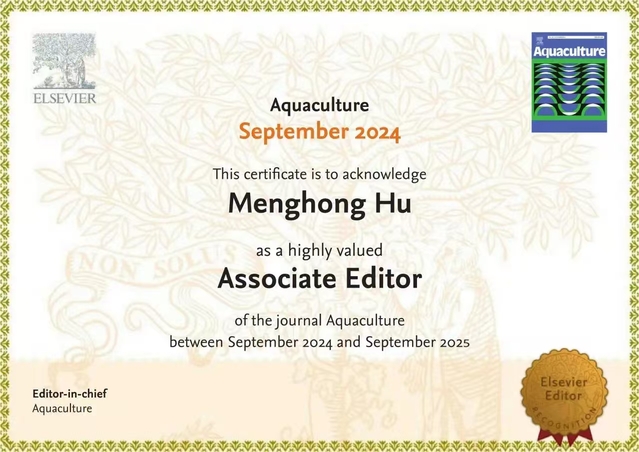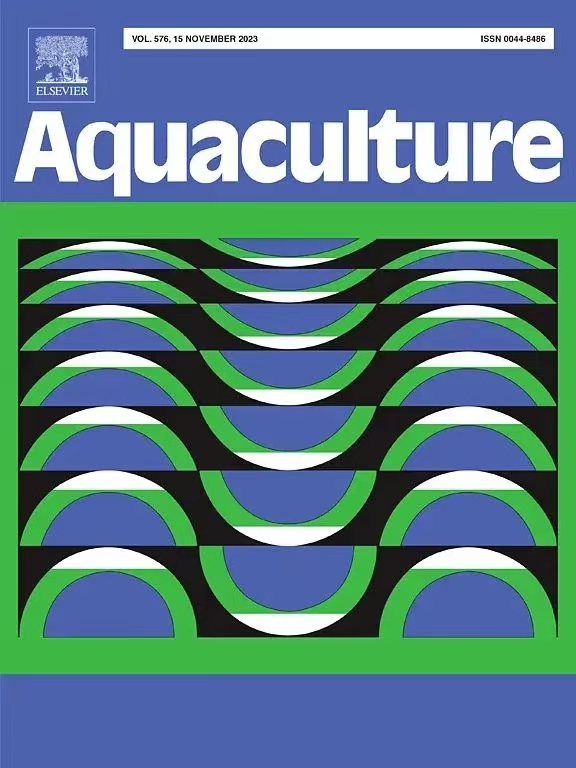发布日期:2024-09-09本条信息已被查看了12次
Professor Hu Menghong was invited to serve as the Associate Editor of the Elsevier journal Aquaculture
Recently, Professor Menghong Hu, was invited to serve as an Associate Editor for the Elsevier journal Aquaculture.


Aquaculture is a top-tier journal in the field of marine and freshwater biology under Elsevier's Agriculture and Forestry portfolio. The journal is dedicated to publishing high-quality research findings related to Aquaculture discipline. It includes traditional aquaculture papers as well as interdisciplinary research, such as sustainability science and social ecosystems. Additionally, it features aquaculture papers on various species used for ornamental, conservation, and restoration purposes. Currently, the journal has an impact factor of 3.9, a CiteScore of 8.6, and is classified as Q1 in JCR rankings.
During her tenure as Associate Editor, Professor Menghong Hu will be primarily responsible for handling submissions, assessing their quality and novelty, inviting expert reviewers for peer review, and making decisions on whether to accept submissions. Professor Hu's appointment as Associate Editor of the journal signifies recognition of her research achievements and academic standing by peers both domestically and internationally, and will also bring a broader international perspective to the development of the team.

Menghong Hu, Ph.D. in Marine Biology from City University of Hong Kong, is a Professor of Aquaculture at Shanghai Ocean University, a Double First-Class discipline in China, and a Ph.D. supervisor. Her research mainly focuses on the physiological ecology of aquatic animals, with an emphasis on the conservation of endangered aquatic species.
In 2016, she was invited to join the Asian specialist group of the IUCN Horseshoe Crab Specialist Group, and in 2022 she became a member of the China Species Specialist Group (CSSG). Professor Hu and her team have taken efficient and environmentally friendly aquaculture technologies as a key approach to biodiversity conservation and ecological civilization construction. They have made breakthroughs in techniques such as tidal simulation-induced spawning, rapid proliferation of Limulus polyphemus blood lymphocytes, establishment of a health assessment system for Chinese sturgeon, and advancing industrial cooperation and species conservation efforts.
Their research on the conservation of endangered aquatic animals has attracted widespread attention and has been covered by various media outlets including The Paper, Shanghai Observer, ScienceNet, China Youth Daily, and China Fishery News. Their work has also been published in the print editions of Shanghai's major newspapers (Jiefang Daily, Wenhui Daily, Xinmin Evening News), with a featured article on the front page of Xinmin Evening News.